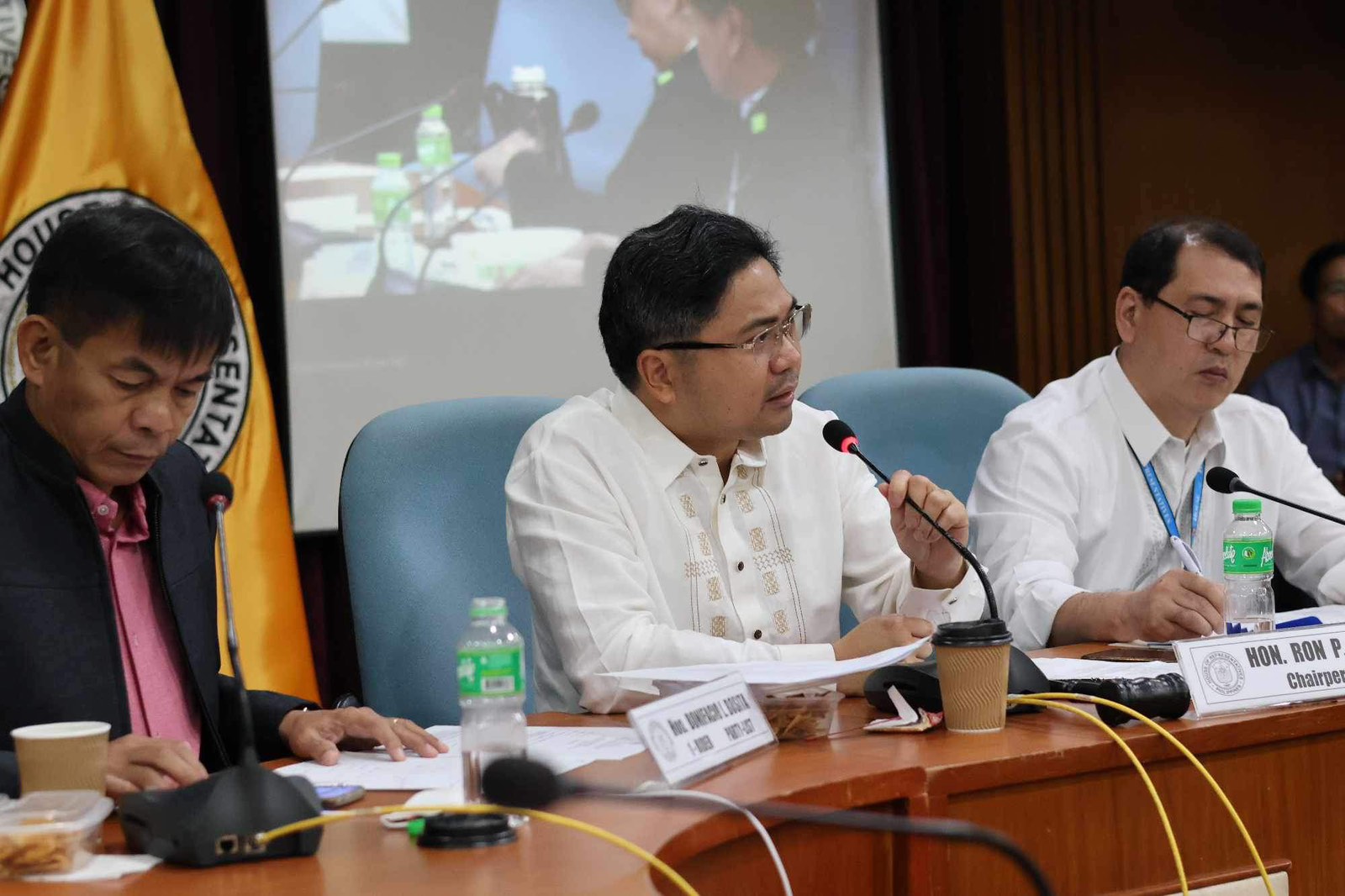PAMI wants seafarers' magna carta tweaked, but Salo says it's a bad idea
At A Glance
- Kabayan Party-list Rep. Ron Salo is rejecting a proposal from the Philippine Association of Maritime Institutions (PAMI) to ditch the mandatory shipboard training provision in the proposed Magna Carta of Filipino Seafarers.
 Kabayan Party-list Rep. Ron Salo (center) (Rep. Salo's office)
Kabayan Party-list Rep. Ron Salo (center) (Rep. Salo's office)
Kabayan Party-list Rep. Ron Salo is rejecting a proposal from the Philippine Association of Maritime Institutions (PAMI) to ditch the mandatory shipboard training provision in the proposed Magna Carta of Filipino Seafarers.
"We cannot agree with the solution offered by PAMI of removing the requirement of shipboard training and making the four-year curriculum of maritime education into purely academics or theoretical discussions," Salo, a prime mover of the measure in Congress, said in a statement Friday, Jan. 12.
PAMI had earlier raised concerns over the provision in the magna carta pertaining to mandatory shipboard training.
" I wish to state that this is not a new requirement," noted Salo, chairman of the House Committee on Overseas Workers Affairs.
The Kabayan solon explained that the measure simply institutionalizes this requirement to ensure full compliance by our maritime higher education institutions (MHEIs).
"This existing requirement is aligned with the findings of the European Maritime Safety Agency (EMSA), which emphasizes the need for comprehensive reforms in Philippine maritime education," he said.
Doing away with it would only "exacerbate the situation", Salo said.
"At present, we have 64 percent of our maritime students who are unable to become full-fledged seafarers because the MHEIs are unable to provide cadetship programs despite being an existing requirement," he pointed out.
"Removing this requirement will further lessen the students’ chance of fulfilling their dreams of becoming seafarers. Certainly, this is not in line with the best interest of our students and the whole Philippine maritime industry," said Salo.
He said the provision acknowledges the need to maintain a delicate balance between theoretical knowledge and practical application, and to ensure that our students undergo the complete maritime education essential for them to be full-fledged seafarers.
The veteran solon said that contrary to the apprehensions raised by PAMI, the shipboard training provisions of the magna carta does not seek to undermine the interests of MHEIs.
"In fact, the provisions in the magna carta encourage collaboration by providing multiple compliance mechanisms such as having their own training ships, utilizing simulators or similar technologies, or entering into agreements with reputable shipping entities," he said.
"Moreover, domestic shipowners have pledged to support MHEIs by committing to accommodate cadets for onboard training. This flexibility ensures that educational institutions have various avenues to fulfill the shipboard training requirements. Thus, MHEIs simply need to exert a little effort in ensuring that their graduates are industry-ready," Salo said.